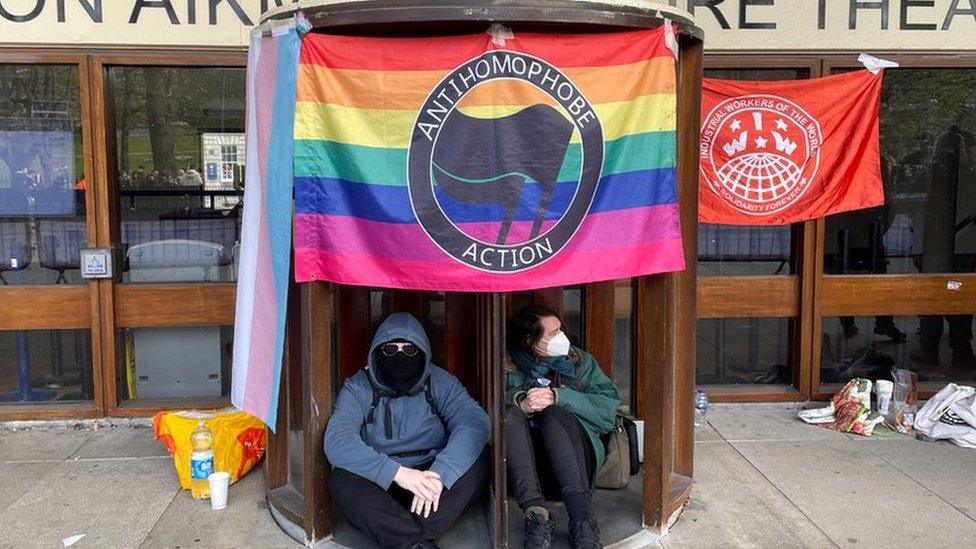Adult Human Female film is shown in Edinburgh
- Published
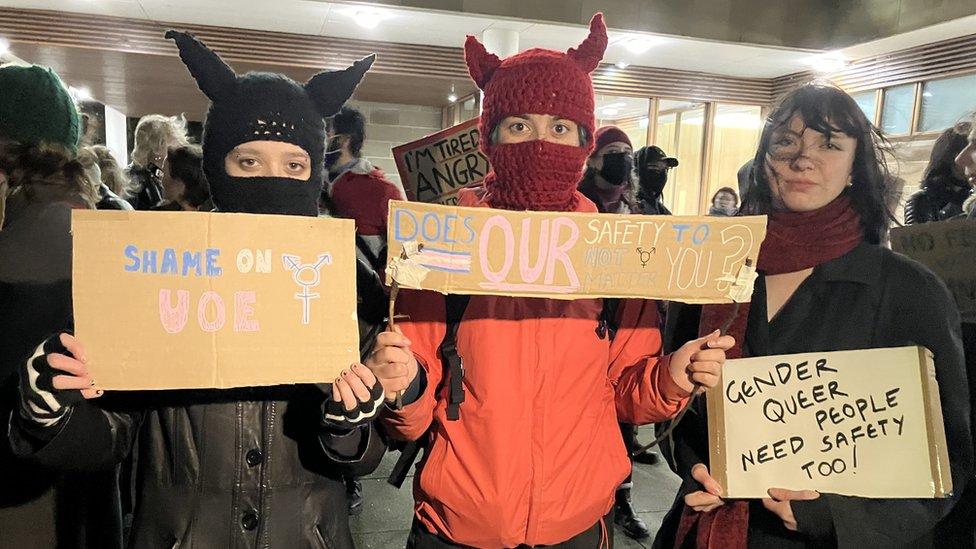
Protesters claim the documentary Adult Human Female is transphobic
Protesters have failed to stop a controversial film on women's rights and trans issues from being shown at the University of Edinburgh.
Two previous screenings of Adult Human Female were cancelled after pro-trans activists blocked the venue.
The film went ahead on Wednesday despite a protest involving more than 100 people.
They say the film is transphobic, a claim denied by the academics behind the screening.
The documentary was directed by academics and film-makers Deirdre O'Neill and Michael Wayne and has been available to view on Youtube, external since December 2022.
The film-makers describe it as "the UK's first feature-length documentary about the clash between women's rights and gender ideology/trans rights".
It defines sex as being determined by biology and says women's rights have been damaged by aspects of the trans movement.
An attempt to show the film last December at the University of Edinburgh was halted amid safety concerns after protesters formed a blockade around the venue. Police were called but no arrests were made.
A second attempt to show it was again cancelled in similar circumstances in April.
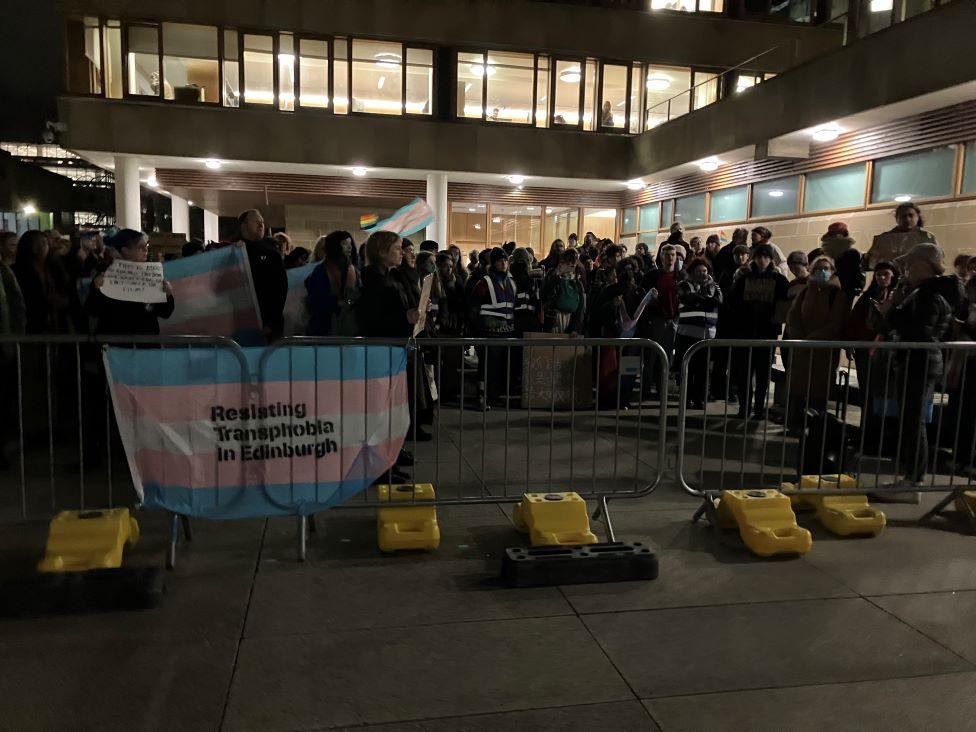
More than 100 protestors tried to prevent the film being shown
The events have been organised by University of Edinburgh Academics for Academic Freedom (EAFAF).
It is made up of university staff who are concerned by what they call a "growing climate of censoriousness and a general chill around discussing and debating difficult issues in this university".
The crowd at Wednesday's event chanted "trans rights are human rights" and shouted "shame" as people arrived for the screening.
Skye Marriner, president of the Edinburgh College Students' Association (ECSA), said the protesters were there to show people that "this kind of thing" was not welcome on the campus.
"It's not supported by the student body in Edinburgh. It actively harms trans people and it supports transphobic language and that's not OK," she said.
"If the trans community says they are not comfortable with this then that is something we need to respect."
Professor Jonathan Hearn, who teaches political sociology at the university and is a founding member EAFAF, said he was relieved the screening was finally going ahead and he was perfectly happy for people to demonstrate.
"It's become a matter of principle for the university to show that it can stand by its academic freedom and freedom of speech policies.
"It's just important symbolically to show that people can show films that are controversial, though I am not sure how controversial it is, and people can protest too. That's OK too," he said.
Related topics
- Published22 November 2023
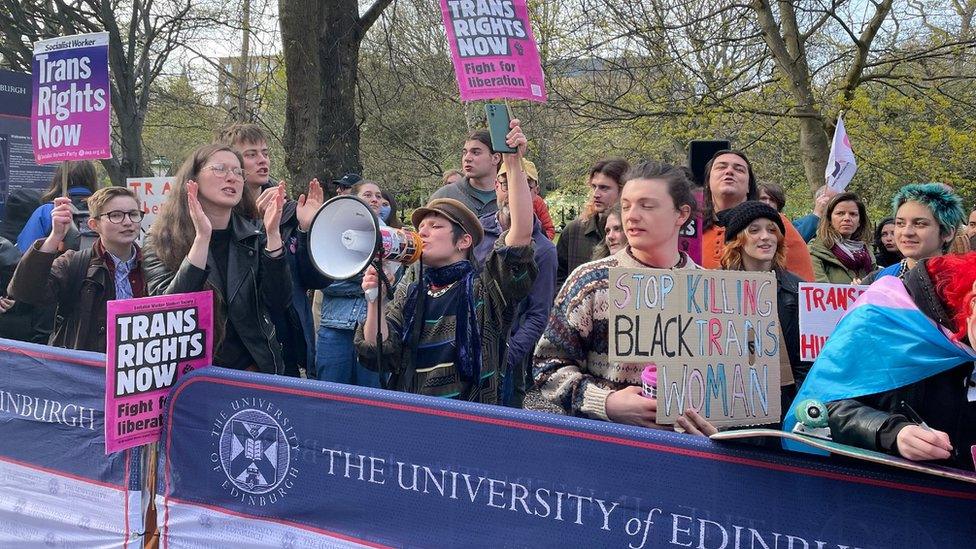
- Published15 December 2022
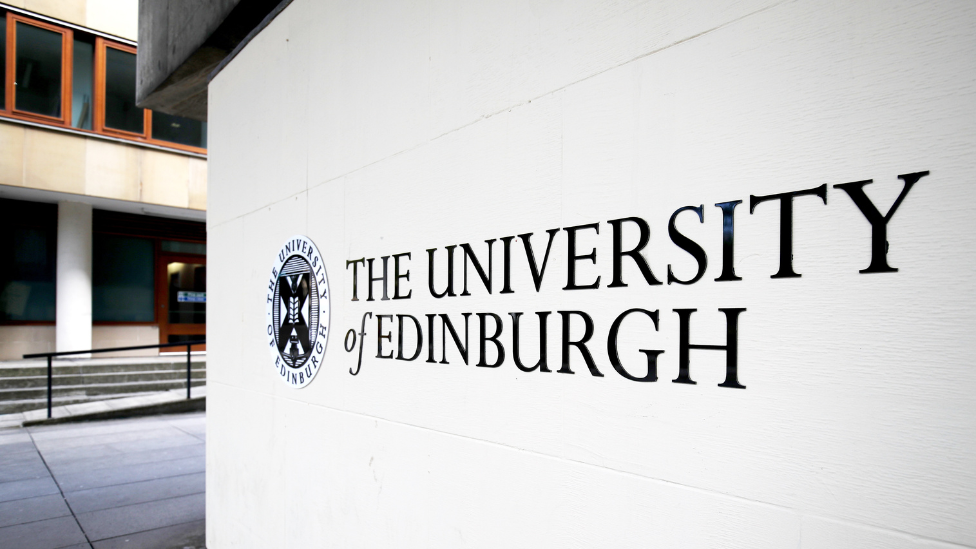
- Published27 April 2023
